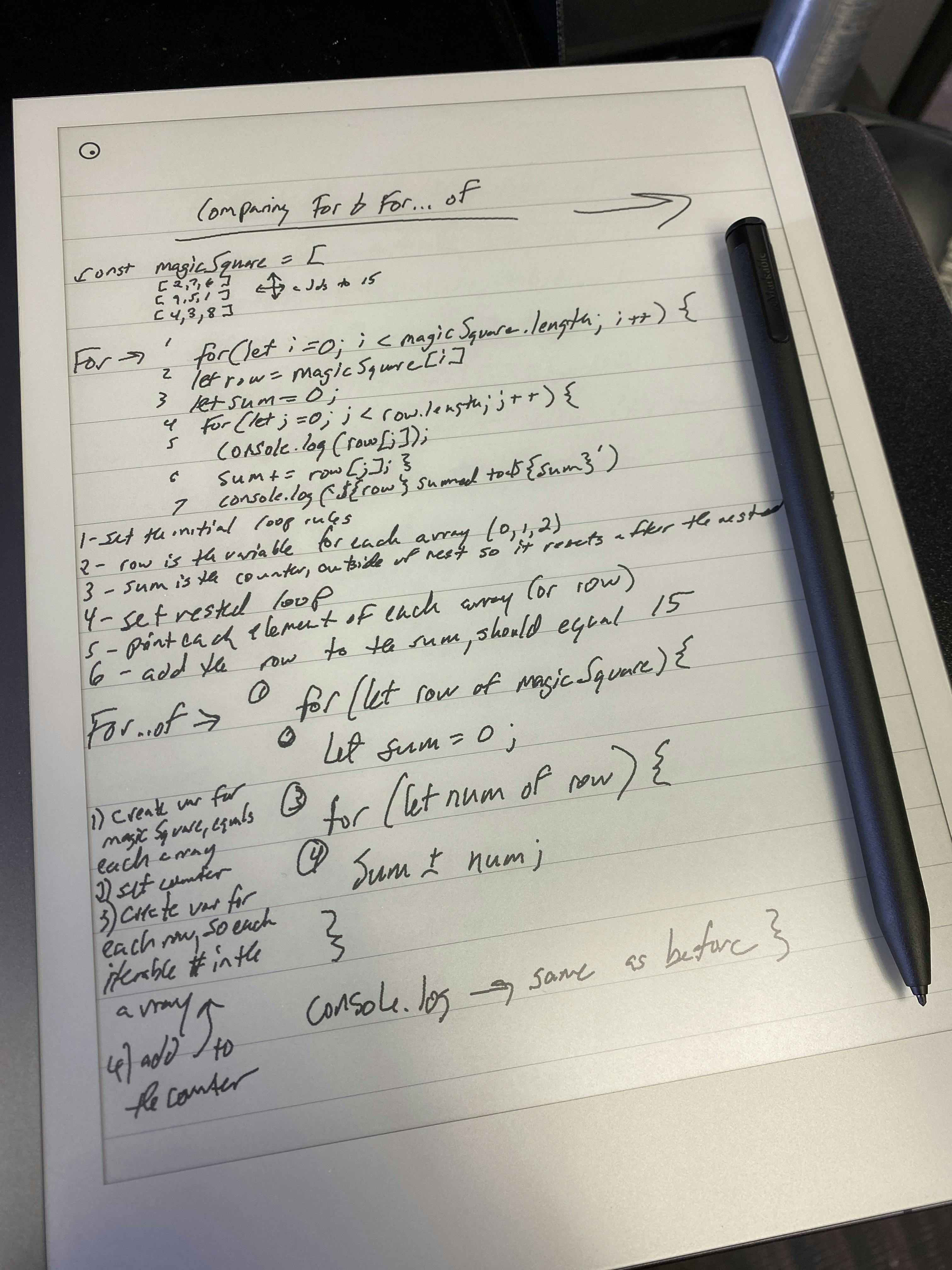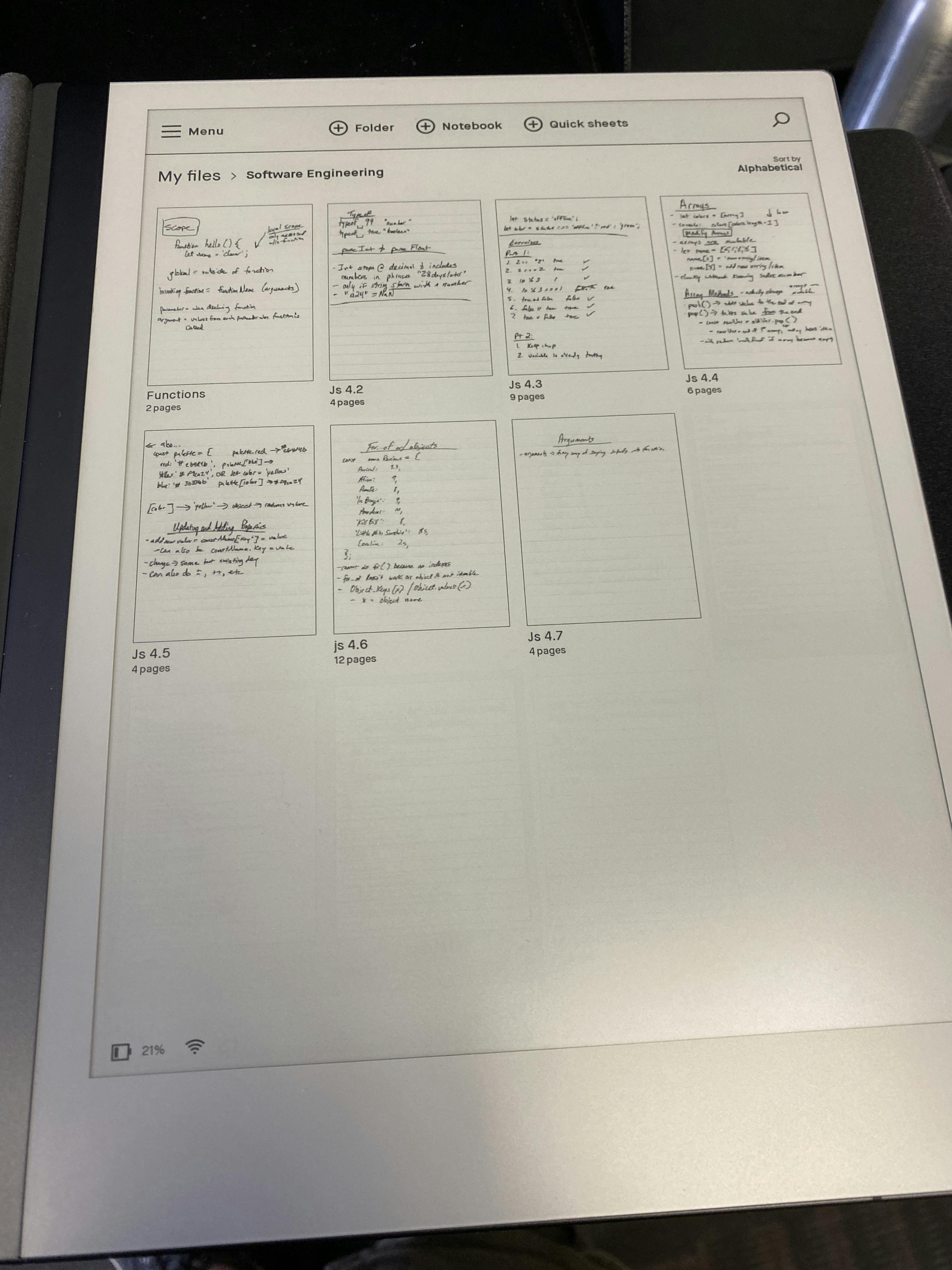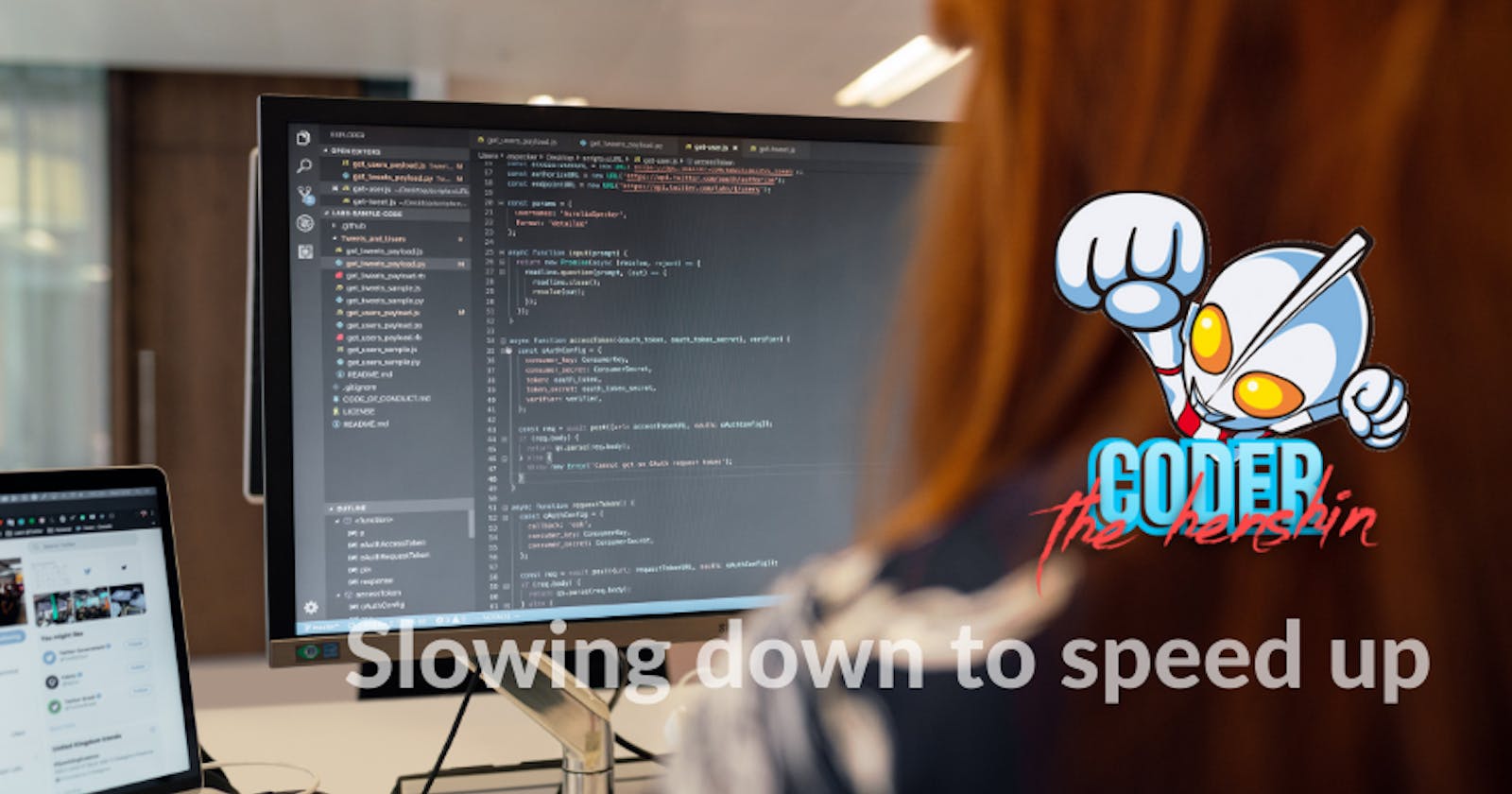In my previous post, I mentioned how I had hit a wall of sorts and started going back through the videos I had already watched. With Springboard's prep class, you have to pass their technical skills survey, which focuses on JavaScript, so if you don't understand that, you're not ready to move on. Pretty simple, right?
At first, I thought it was just a matter of not being able to put together all of the things I had "learned." I just need to take a day off, clear my head, and get back to it was my line of reasoning. However, as soon as I started taking actual notes, instead of simply coding along, it dawned on me:
I didn't actually understand what I had been learning.

Over the past year, most of my reading has been focused on, largely, the role of digital technology (whether that's TV, the Internet, smartphones, and social media) on human beings, and what it does to our formation. That is: our dispositions, our emotions, our habits, even the way we think and retain information. There are studies that seem to indicate that if someone is told the information they are learning and inputting won't be saved, they are more likely to retain it compared to those who take it for granted they can refer to and Google the information later.[1] This isn't to say it is inherently wrong to use Google to learn, but that there is a cost to having the world at our fingertips. Technology is not inherently neutral.
This post isn't meant to be some technology/ethics rant, however, but to make a point: I have had to relearn the discipline of taking notes, and the benefit of actually writing notes instead of merely typing them out. When my brain registers I've got a pen in my hand, and I'm taking it to the screen of my tablet, something different happens than if I was simply type-type-typing away on my keyboard.
More importantly, I've noticed the difference this time around as I've watched the lessons. I'm taking more time, as I'm writing down every line of code and breaking down what's happening into my own words. My goal: if I cannot explain what's happening, then I don't understand it well enough to move on.

And it has worked. Whereas loops were confusing the first time around, the concept makes more sense now. Sure, I still have a lot to learn; this is a prep class, after all. But whereas it took me a few days to solve two practice problems in the final subunit, I was able to solve three yesterday in one sitting. Problems that had previously given me a headache and a half.
Everyone is going to have a different process when it comes to learning and retaining the information they're faced with. However, I think it's important to remember as we continue to progress into a technologically and digitally-driven world, it's good to go back to more of the "analog" practices we have left behind. It doesn't mean we can't use new tools to do this; that's a huge reason why I bought, and am an advocate for, the reMarkable 2 tablet . It allows me to keep my brain and hands working together, but I don't have to re-type any notes if I'd like them on my computer. In fact, not only can I export my notes as a PDF, but it'll also convert my text into a text document as well!

That said, I want to hear from you: what do you do in order to retain the information you learn? Do you struggle with this as well? Any tips you have to offer?
[1] I don't have the actual case study in front of me, unfortunately, but I highly recommend checking out both The Shallows and The Glass Cage by Nicholas Carr. Absolutely vital books for our day and age.
